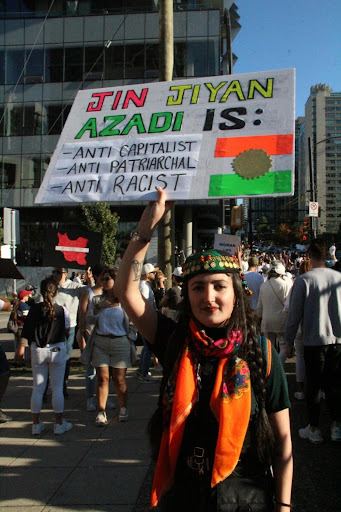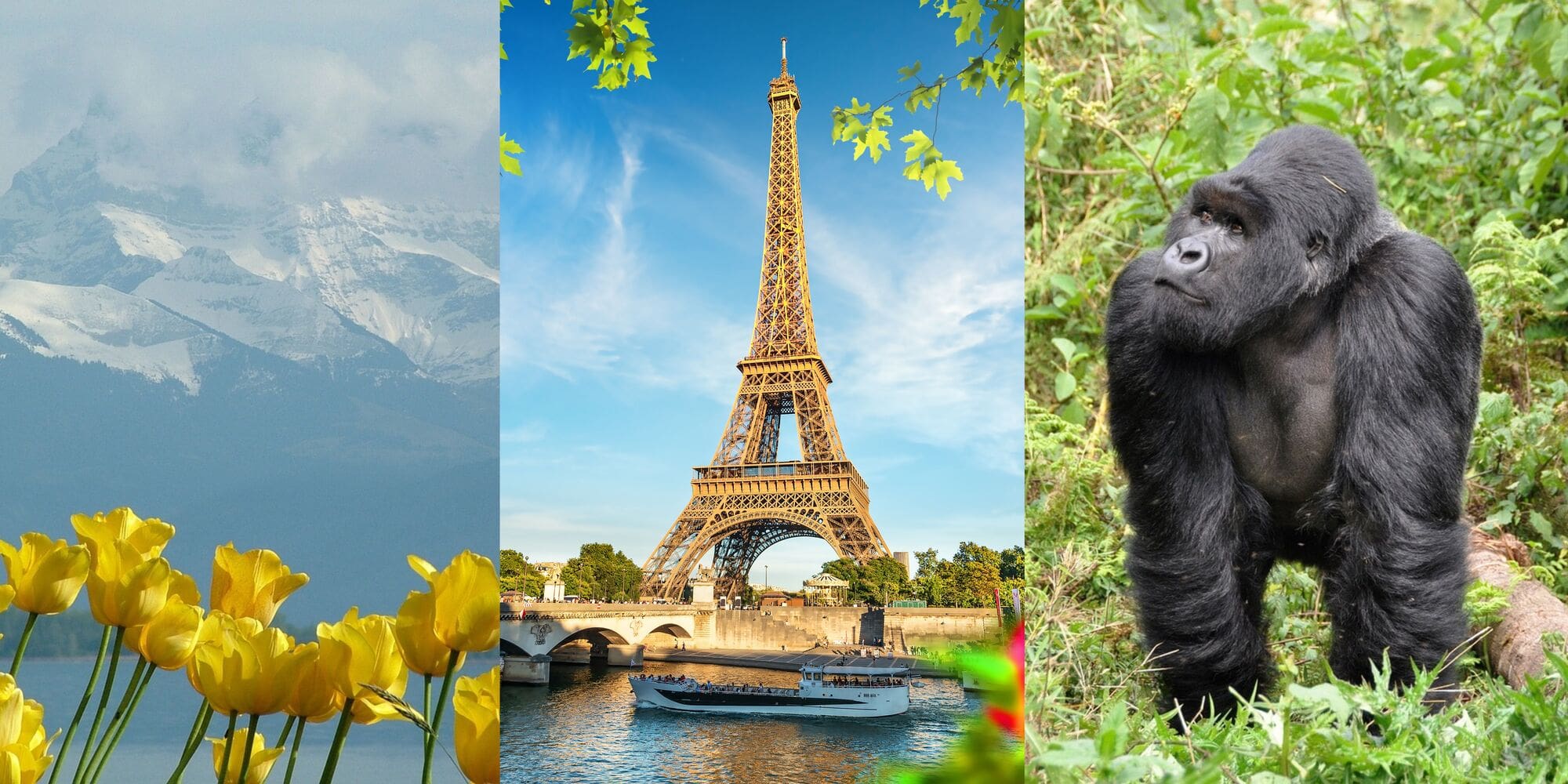
Courage In The Impossible: Gaza’s Poets Speak
Amidst Gaza’s turmoil, poets’ voices resonate. Explore Palestinian poetry’s power and resilience.


Millions around the world mark Eid al-Adha (عيد الأضحى) and Eid al-Fitr (عيد الفطر) with great food and festivities, surrounded by dear ones. Here are some of the most common greetings from around the Arabic-speaking world you can use to wish someone a happy and prosperous Eid (and the typical responses offered)!
1. Eid Mubarak (عيد مبارك) or Eidkom Mubarak (عيدكم مبارك) – Across the Arab world
Eid Mubarak (عيد مبارك) is perhaps the most typical way to wish someone a happy Eid – during both Eid al-Adha and Eid al-Fitr. It is in the singular form and literally translates to, “[have a] blessed Eid”. In response, one could say one of the following: Eid mubarak (عيد مبارك), meaning, “[a] blessed Eid [to you, too]”, Allah yebarek feek/i (الله يبارك فيك), equating to, “God bless you [too]”, or simply, Shukran (شكراً), meaning “thank you”.
The plural form, Eidkom Mubarak (عيدكم مبارك), is equally, if not more, common when addressing one person or more, because you would be extending the Eid wishes to their families, too. One would hear back Eidkom Mubarak (عيدكم مبارك) or similar to the above, Allah yebarek feek/i (الله يبارك فيك).
2. Eid Mubarak (عيد مبارك) or Eidkom Mubarak (عيدكم مبارك) – Yemen (slight variation)
This is the same wish as above, however, it is important to note that in the Yemeni dialect, the conversation will unfold differently:
Speaker 1: Eid Mubarak (عيد مبارك)
Speaker 2: Eid Mubarak (عيد مبارك)
Speaker 1: Min al-aydeen (من العايدين – meaning, ‘‘may you be among those who celebrate Eid over and over’’).
Speaker 2: Min al-fayzeen (من الفايزين – meaning, ‘‘may you be among those who are successful’’).
3. Eid Saeed (عيد سعيد) – Across the Arab world
This greeting translates to “Happy Eid”, and can be used for any Eid in all Arabic-speaking communities, from North Africa to the Persian Gulf. The responses would be Eid saeed (عيد سعيد), Eid mubarak (عيد مبارك), or the most common of all: A’layna wa a’leykom (علينا و عليكم), meaning “Upon us and upon you [all]”.
To specify the Eid, slightly vary the greeting to Eid Fitr saeed (عيد فطر سعيد) or Eid Adha saeed (عيد اضحى سعيد), which translate to “Happy Eid al-Fitr” and “Happy Eid al-Adha”, respectively. The response for both could be the same greeting back, Eid mubarak (عيد مبارك), or the best one: A’layna wa a’leykom (علينا وعليكم), meaning “Upon us and upon you [all]”.
4. Eid Adha mubarak (عيد اضحى مبارك) – Across the Arab world
This greeting is most apt for Eid al-Adha and is arguably less common than the generic ones above – its literal meaning is “[Have a] Blessed Eid al-Adha”. In response, the same can be repeated back, or your can opt for: Eid mubarak (عيد مبارك), Eid saeed (عيد سعيد), or Allah yebarek feek/i (الله يبارك فيك), meaning, “God bless you [too]”.
5. Adha mubarak a’aljamie’ (أضحى مبارك عالجميع) – Levant
Also specific to Eid al-Adha, this phrase means “Blessed [Eid] Adha to everybody” and is one of the phrases used among Levantine speakers. A typical response would be Amin ya rab, Adha mubarak (امين يارب أضحى مبارك), meaning “Amen dear Lord, [have a] blessed Adha [to you, too]”.
6. Kol ‘am wa entou bekhair (كل عام وأنتو بخير) – Levant
Another popular Levantine expression is Kol ‘am wa entou bekhair, translating to: ‘‘I wish you [all] goodness every year’’. The typical reply would be: wa entou bekhair (وأنتو بخير), meaning ‘‘and goodness to you [all, too]’’. This is in the plural form and can be said to one or more persons, as it is common to extend the wishes to their families, too.
In the Iraqi and Gulf dialect, slightly tweak this greeting to: kol ‘am we antom bikhair (كل عام و انتم بخير).
7. Kol sana wa entou salmeen (كل سنة وانتوا سالمين) – Levant and Iraq
This greeting is a variation of the previous Eid wish, which roughly translates to “may every year find you well”. The response would be Wa entou salmeen (وانتوا سالمين), meaning “may every year [also] find you well.”
8. Kol eid wa entou bekhair (كل عيد و وانتوا بخير) – Levant
This phrase means “May every Eid find you in good health” – yet another warm Eid salutation. In response, the appropriate answer would be Wa entou bekhair (وانتوا بخير), meaning ‘‘and goodness to you [all, too]’’.
9. Yen’ad alaykom belkhair (ينعاد عليكم بالخير) – Levant
This phrase means “Wishing you [all] good health until next year/Eid”. A typical reply would be Amin ya rab, wa alaykom (امين يارب وعليكم), translating to “Amen dear lord, to you [all, too]”.
10. Yen’ad alaykom bel-sahha wa al-saleme (ينعاد عليكم بالصحة والسلامة) – Levant
A variation of the previous greeting, this Levantine phrase translates to, ‘‘Wishing you [all good] health and wellness’’. In response one would say: Wa alaykom bel-sahha wa al-saleme (وعليكم و بالصحة والسلامة) meaning, ‘‘may health and wellness be upon you [too]’’.
11. Kol sana wa anta/i tayeb/a (كل سنه وأنت/ه طيب/ه) – Egypt
Kol sana wa anta/i tayeb/a is the Egyptian counterpart of the similar Levantine greeting. This common greeting means ‘‘I wish you goodness every year’’, and is also used as a birthday wish! It is often followed by Wa anta/i tayeb/a (وأنت طيب) in response, meaning ‘‘and I [wish] you goodness [too]”, or Eid saeed ‘alayna (عيد سعيد علينا), meaning ‘‘happy Eid to us [all]”.
12. Eidkum mubarak we kol ‘am we antom bikhair (عيدكم مبارك و كل عام و انتم بخير) – Iraq and the Gulf region
This popular greeting, when wishing Iraqi and Khaleeji speakers, is a combination of two aforementioned greetings: Eidkum mubarak (عيدكم مبارك), meaning “[have a] blessed eid [to all]”, and, we kol ‘am we antom bikhair (و كل عام و انتم بخير), meaning ‘and ‘I wish you goodness every year’’. It is in the plural form and can generally be said to all genders and any number of speakers. A typical response would be either Eidkum mubarak (عيدكم مبارك) or we antom bikhair (وانتم بخير).
13. Eidkum mubarak wa inshallah min al-aydeen (عيدكم مبارك وإن شاء الله من العايدين) – Iraq
This is another Eid salutation in Iraqi Arabic, meaning, “[Have a] blessed Eid and God willing, may you be among those who celebrate it over and over”. One would usually answer with Nahnu wa eyakom inshalla (نحن و إياكم ان شاء الله), which translates to “you and us [both], God willingly”.
14. Eidkum mubarak wa asakum min uwwadah (عيدكم مبارك وعساكم من عواده) – The Gulf region
This heartfelt expression means: ‘‘Have a blessed Eid and may you go on to witness many more Eids’’. In response one would say: Mubarak ‘alayna wa alaikum inshallah (مبارك علينا وعليكم إن شاء الله), which equates to ‘‘God willing, blessings on us and you’’.
15. Mabrouk el Eid (مبروك العيد) – Morocco
In the Moroccan Arabic dialect, this greeting literally translates to “congratulations [for] Eid”, and it is a variation of the aforementioned Eid Mubarak (عيد مبارك). An appropriate response would be Allah yebarek feek/i (الله يبارك فيك), which means “God bless you [too]”.
________________________________
Book a session, today, to learn more about these greetings and the various dialects of Arabic with NaTakallam’s native language tutors! Choose from Modern Standard Arabic and 7 dialects: Egyptian, Iraqi, Yemeni, and Levantine – Lebanese and Syrian/Palestinian.
To our language partners, learners, friends, supporters and all those celebrating, Eid Mubarak!
Here at NaTakallam, every language session contributes to the livelihoods of our skilled tutors from refugee/displaced backgrounds and their host communities. Learn a language, change a life.
Reimagine your language journey with NaTakallam.
Try a session in Arabic, Armenian, English, French, Kurdish, Persian or Spanish.
Languages open doors and minds. Discover new worlds.
Learn Arabic, Armenian, English, French, Kurdish, Persian or Spanish.
Deep dive into a language, packed with culture. Personalized to you.
Choose from Arabic, Armenian, English, French, Kurdish, Persian or Spanish.
Deep dive into a language, packed with culture. Personalized to you.
Choose from Arabic, Armenian, English, French, Kurdish, Persian or Spanish.
You might also LiKe

Amidst Gaza’s turmoil, poets’ voices resonate. Explore Palestinian poetry’s power and resilience.

Since the start of the ongoing Mahsa Amini Protests, we’ve heard the slogan “Woman, Life, Freedom” travel around the world. In Persian this is “zan, zendegî, âzâdî” (زن, زندگی, آزادی), but the slogan originates in the Kurdish language and the Kurdish struggle for autonomy.

A smattering of French slang from around the world! Learn more expressions like this with NaTakallam’s native speaking tutors.

Spanish is one of the fastest growing foreign languages in the world. Get access to the Spanish business world with our native tutors – tailored to your needs.
Improve your proficiency in Farsi or Dari & contextualize your learning with cultural insights from our native tutors. Language & culture go hand-in-hand at NaTakallam.
Looking to do business with Kurdish businesses? Learn with NaTakallam’s native speakers & reach new language (& business) goals – tailored to your professional needs.
Gain an edge with contextualized French learning by native tutors from displaced backgrounds. Flexible, with cultural & business insights, tailored to your needs.
Choose from Eastern Armenian or Western Armenian. Get quality teaching & unique insights from native tutors. Gain an edge with Armenian language skills.
Offer your team a smoother integration or transition with our customized English lessons delivered by bilingual tutors with extensive English instruction experience.
Choose from Modern Standard Arabic or any of our 7+ dialects offered by native tutors across the region. Take your proficiency to the next level & connect with the Arab business world.